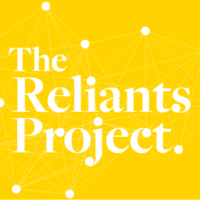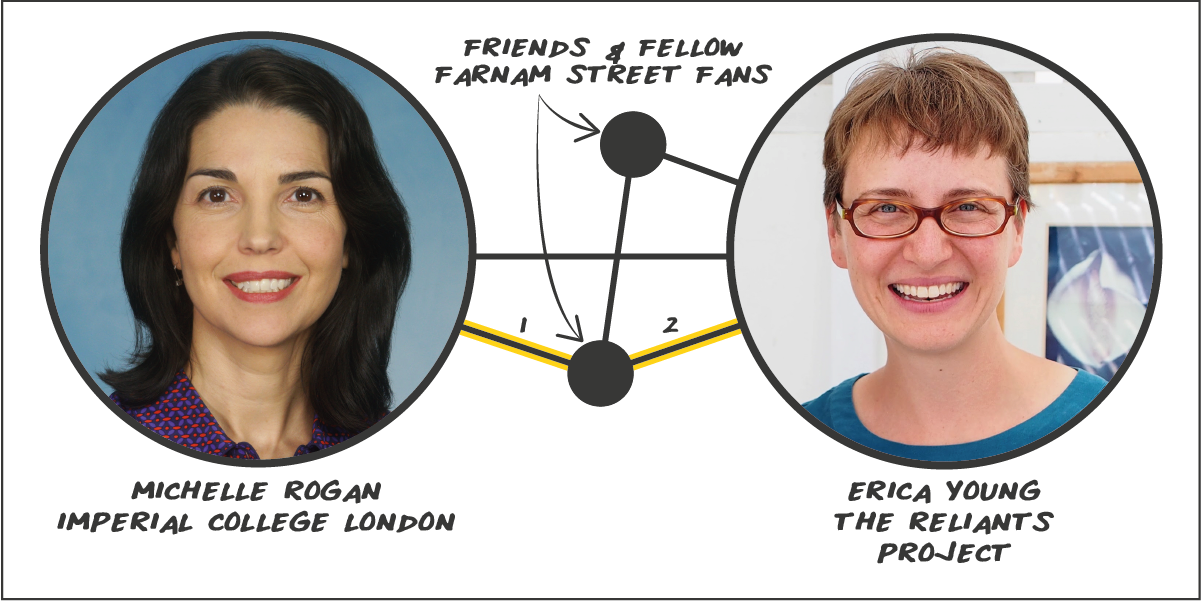Podcast: Play in new window | Download
Michelle Rogan is an Associate Professor of Strategy and Entrepreneurship at Imperial College London Business School. Her research explores how people and organisations’ social capital impacts entrepreneurship and innovation.
In this episode we:
– Talk about how small worlds show up in our lives
– Discuss who actually owns your professional network and how that impacts job performance
– How the nature of your work relationships influences your ability to successfully change jobs
KEY NETWORK SCIENCE CONCEPTS
SHOW NOTES
- Self-described “network convert” Michelle Rogan explains the network science principles that led to her meeting Erica [1:46]
- Unfortunately, people often see networking as self-serving and manipulative. Michelle and Erica discuss the benefit of switching the perspective from network calculating to network cultivating. [2:49]
- There can be dissonance between network structure theory and everyday network upkeep. How is Michelle’s research bridging this gap? [6:25]
- It is important to understand where your network ties come from. Michelle reviews concepts in individual and organisational/firm ties, sharing personal examples. [8:30]
- Theoretical examples offer stark contrast– but, in reality, lines of who “owns” a network can blur. How can we strategically navigate this common middle ground between firm and individual ties ? [13:05]
- Examples of moving relational ties:
- From organisational to individual [14:00]
- From individual to organisational [14:55]
- Networks may not be as portable as we would hope. How do networks move with people and companies over time? [16:10]
- What is “binding Gulliver” and how do advertising holding companies use it to stabilise their network? [19:35]
- Study showing strong correlation between having more individual ties and offering a higher contribution within firm ties. [21:10]
- How can a strict professional environment homogenise the nature of an employee’s network? Why are companies encouraging their employees to cultivate their individual network ties? [21:22]
- When Boris Groysberg (Harvard) observed a surprising performance drop in employees moving firms, there were fascinating rule exceptions. Why were women more likely to maintain networks when moving firms? [23:36]
- Bluebox: Erica explains the concept of Small Worlds and how it relates to the idea of Six Degrees of Separation [27:24]
- Tangible advice for professionals seeking to thrive within a firm or improve their independent value while moving firms. [29:24]
- Switching your networking perspective from “what do I need?” to “what can I offer?” [33:03]
- How has Michelle experienced performance variation when moving between different organisations in her own career? [34:54]
- What role did networks play in Michelle’s professional beginnings and development? [37:15]
- “Chance favours the connected mind” – Steven Johnson. Michelle and Erica consider the ways in which strong networks better prepare us for unexpected opportunities. [39:29]
SELECTED LINKS FROM EPISODE
Connect to Michelle – Twitter | LinkedIn | Research
- Managerial Networks and Exploration in a Professional Service Firm – Michelle Rogan & Mary Louise Mors
- (When) Do Organizations Have Social Capital? – Michelle Rogan & Olav Sorenson
- Steven Johnson, Where Good Ideas Come from: The Natural History of Innovation
PEOPLE MENTIONED

